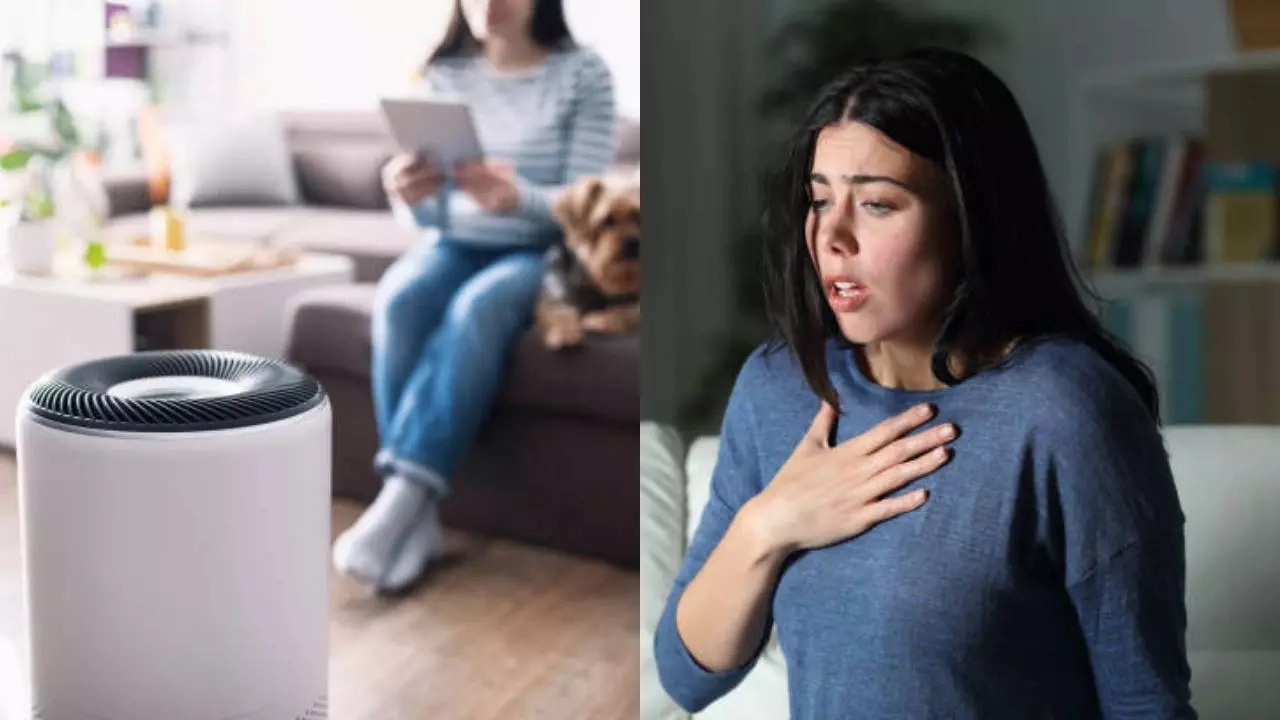
Even though using an air purifier is extremely important to keep the air quality on the right track inside your house, using the gadget excessively can also make a few things worse
As the pollution levels and air quality in Delhi-NCR continue to deteriorate most places in and around the national capital recorded an AQI in the 'very poor' to ‘severe’ categories, prompting various kinds of health issues in the residents.
And so, many people are now using air purifiers – often touted as a reliable solution for indoor air quality health concerns. But do they really clean your household air?
What is an air purifier?
An air purifier is a device designed to filter the air in a single room - not your whole home. Most of the current portable air purifiers are designed to filter both particles and gases – which are harmful to your health. However, according to experts, one single filter cannot do the entire job, especially when the pollution levels go extremely high.
Purifiers use fans to draw air in through one or more filters, trap various contaminants, and then re-circulate the cleaner air back into the room. Experts say the most important variable in an air purifier is the filter – which strains out particles with the help of HEPA - designed to collect at least 99.5 per cent of dust and toxicity in the air that are 3 microns or less in size.
The effectiveness of a HEPA filter depends on how tightly bound the fibers are.
Are air purifiers effective?
Most people get confused about whether air purifiers work to their full potential when pollution levels go extremely high during this time of the year. However, according to experts, they are effective, but only to a certain degree, as the full efficacy depends on a number of factors:
- The types of contaminants in your home
- The kind of ventilation you have at home
- The type and number of filters your air purifier uses
- How consistently do you use the air purifier
What are the side effects of using air purifiers on your health?
Even though using an air purifier is extremely important to keep the air quality on the right track inside your house, using the gadget excessively can also make a few things worse. A few include:
Breathing troubles
According to experts, one of the major problems of consistently using air purifiers in your room is developing respiratory problems – which include breathlessness or wheezing. Doctors say it happens due to being in an environment with overly filtered air, which deprives your lungs and immune systems of essential airborne microorganisms they need – spiking the risk of infections and allergies.
Headaches and migraines
Constantly being in a room with an air purifier can cause dizziness, headaches, and even throbbing migraines. So, it is important to select a gadget that is certified for minimal emissions of harmful substances.
Skin and eye dryness
Excessively using air purifiers can also make the indoor air very dry – especially due to HEPA filters, which lower humidity and result in the dryness of skin and eyes and irritated sinuses.
Triggering asthma and other lung infections
According to experts, a few purifiers – especially the ones that ionization technology can create ozone as a byproduct – irritate the respiratory system and lead to serious respiratory issues like worsening asthma symptoms and chronic lung conditions.
How do you protect yourself from these side effects?
Doctors say to enjoy the advantages of air purifiers and not get sick is to use them in moderation. Also, when buying them, always go for models that do not produce ozone and have low VOC emissions, which can lessen health risks.
Make sure to regularly change filters and properly maintain the unit according to the manufacturer's directions.
Get Latest News Live on Times Now along with Breaking News and Top Headlines from Health and around the world.